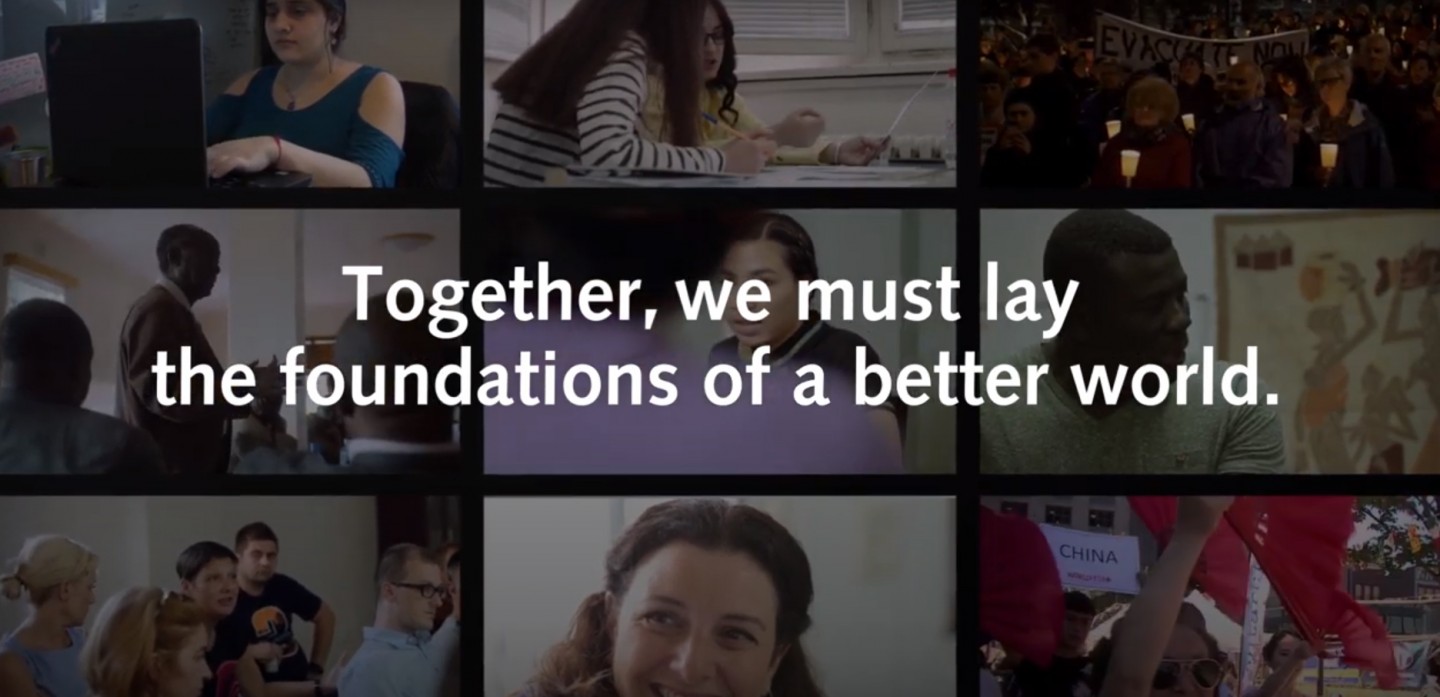For latest expat news; follow our Facebook, Instagram, LinkedIn, YouTube, Telegram and Twitter pages.
2021 Global Pluralism Award - Total prize pool of CAD $150,000
The application and nomination process for the 2021 Global Pluralism Award closes on June 30, 2020.

Interlanguage News from WorldWide 
2021 Global Pluralism Award
The application and nomination process for the 2021 Global Pluralism Award closes on June 30, 2020.
2021 Award Submission Guidelines The Global Pluralism Award (“the Award”) celebrates and supports efforts and achievements that advance pluralism. The Award is given every two years to individuals, organizations, government bodies and private sector actors, from any country, that demonstrate exceptional and sustained achievement in building more inclusive societies in which human diversity is protected and valued. The Award is a program of the Global Centre for Pluralism (“the Centre”). Founded in Ottawa, Canada by His Highness the Aga Khan in partnership with the Government of Canada, the Centre is an independent, not-for-profit organization that serves as a global platform for comparative analysis, education and dialogue about the choices and actions that advance and sustain pluralism.
Submissions now being accepted for the
2021 Global Pluralism Awards!
Nominations for the Award can only be submitted online through this website. Nominations are accepted from nominators or candidates themselves.
Submissions will be accepted until June 30, 2020 – 5 p.m. Eastern Time.
The Award
Three Award winners will share a total prize pool of CAD $150,000. The monetary prize will be equally divided among the three Award winners (CAD $50,000 each).1 In late 2021, each of the three Award winners and up to seven honourable mention recipients, or their delegates, will be invited to the Award ceremony. In addition to the financial Award, the Centre will work with Award winners to develop a program of in-kind support and engagement in 2022. This may include communications support, opportunities to engage in the research and educational activities of the Centre, residency/internships at the Centre, inclusion in the Centre’s pluralism education and training initiatives, etc.
Eligibility Criteria
Candidates from any country are eligible, including: • Individuals (e.g., artists, journalists, academics, policy-makers, filmmakers, etc.); • Civil society organizations (e.g., professional associations, faith-based organizations, labour unions, non-profit research or educational institutions, local community groups, nongovernmental organizations, foundations, think tanks, etc); • Social enterprises; • Corporations (public or private); • Educational, research and policy institutions (public or private); • Local/municipal, regional or federal/national branches or agencies of government. Candidates must meet the following requirements: • Candidates must be living. The Award cannot be given posthumously. • Candidates for the 2021 Award must not have submitted an application consecutively in both of the last two Award cycles (2017 and 2019 Award). • Candidates must not have previously received the Global Pluralism Award or an honourable mention. • Candidates must not be an agency, employee or institutional project of any of the Centre’s founding partners, namely the Government of Canada and the Aga Khan Development Network. Partner or grantee organizations of the aforementioned, however, are eligible to apply. • Candidates must not be members of the Jury, the Centre’s Board or staff, a Centre’s Director emeritus, former juror or a consultant receiving remuneration from the Centre at the time of nomination. Close relations and organizations owned or operated by members of the Jury, the Centre’s Board members, Centre’s Director Emeriti, former jurors and staff are also ineligible. • Candidates for the Award must not have been found guilty of committing violent crimes, terrorism, or other criminal activities; or have publicly held extremist views.
Selection Criteria
An independent international Jury of experts will evaluate submissions using the following criteria: Relevance to pluralism Candidates need to demonstrate an exceptional and sustained contribution to pluralism. The Centre defines pluralism as an ethic of respect for human differences. Pluralism is a positive response to diversity, grounded in mutual recognition and respect. Pluralism results from the daily decisions taken by state institutions, civil society organizations and individuals to recognize and value human differences. Belonging is the goal of pluralism. In pluralist societies, choices are made to ensure the full participation of all people in political, economic and socio-cultural life. Every person becomes a valued member of society—regardless of gender, sexual orientation, nationality, ability, racial, ethnic, religious or cultural differences. Inclusive societies are promoted by a wide range of actors from multiple disciplines including, but not limited to, legal reform, human rights, democracy promotion, social cohesion, education, ethnic relations, conflict resolution, peacebuilding, migration and integration, media, arts and culture, etc. To learn about the 2017 and 2019 Award winners and honourable mentions, please visit our website click learn more link.
Impact When measuring impact, the Award Jury will focus on the direct results of an individual’s or organization’s activities. The candidate’s actions, initiative or approach must demonstrate: • A clear, logical connection to pluralism outcomes. • Progress to improve the inclusion of diverse individuals or groups in the economy, society, culture, politics, health services, education sector, and so on. • A high likelihood of long-term sustainability.
Authenticity Candidates must demonstrate that, through their activities, they have committed in an exceptional and sustained way to the inclusion of diverse individuals in the economy, society, culture, politics, health services, education sector, and so on. • If applying as an institution, candidates must have adopted equality and diversity policies and practices as reflected in their human resource policies, composition of their staff, membership and activities. • If applying as individuals, candidates must have defended and supported pluralism principles in their professional and personal lives.
The application and nomination process for the 2021 Global Pluralism Award closes on June 30, 2020.
2021 Award Submission Guidelines The Global Pluralism Award (“the Award”) celebrates and supports efforts and achievements that advance pluralism. The Award is given every two years to individuals, organizations, government bodies and private sector actors, from any country, that demonstrate exceptional and sustained achievement in building more inclusive societies in which human diversity is protected and valued. The Award is a program of the Global Centre for Pluralism (“the Centre”). Founded in Ottawa, Canada by His Highness the Aga Khan in partnership with the Government of Canada, the Centre is an independent, not-for-profit organization that serves as a global platform for comparative analysis, education and dialogue about the choices and actions that advance and sustain pluralism.
Submissions now being accepted for the
2021 Global Pluralism Awards!
Nominations for the Award can only be submitted online through this website. Nominations are accepted from nominators or candidates themselves.
Submissions will be accepted until June 30, 2020 – 5 p.m. Eastern Time.
The Award
Three Award winners will share a total prize pool of CAD $150,000. The monetary prize will be equally divided among the three Award winners (CAD $50,000 each).1 In late 2021, each of the three Award winners and up to seven honourable mention recipients, or their delegates, will be invited to the Award ceremony. In addition to the financial Award, the Centre will work with Award winners to develop a program of in-kind support and engagement in 2022. This may include communications support, opportunities to engage in the research and educational activities of the Centre, residency/internships at the Centre, inclusion in the Centre’s pluralism education and training initiatives, etc.
Eligibility Criteria
Candidates from any country are eligible, including: • Individuals (e.g., artists, journalists, academics, policy-makers, filmmakers, etc.); • Civil society organizations (e.g., professional associations, faith-based organizations, labour unions, non-profit research or educational institutions, local community groups, nongovernmental organizations, foundations, think tanks, etc); • Social enterprises; • Corporations (public or private); • Educational, research and policy institutions (public or private); • Local/municipal, regional or federal/national branches or agencies of government. Candidates must meet the following requirements: • Candidates must be living. The Award cannot be given posthumously. • Candidates for the 2021 Award must not have submitted an application consecutively in both of the last two Award cycles (2017 and 2019 Award). • Candidates must not have previously received the Global Pluralism Award or an honourable mention. • Candidates must not be an agency, employee or institutional project of any of the Centre’s founding partners, namely the Government of Canada and the Aga Khan Development Network. Partner or grantee organizations of the aforementioned, however, are eligible to apply. • Candidates must not be members of the Jury, the Centre’s Board or staff, a Centre’s Director emeritus, former juror or a consultant receiving remuneration from the Centre at the time of nomination. Close relations and organizations owned or operated by members of the Jury, the Centre’s Board members, Centre’s Director Emeriti, former jurors and staff are also ineligible. • Candidates for the Award must not have been found guilty of committing violent crimes, terrorism, or other criminal activities; or have publicly held extremist views.
Selection Criteria
An independent international Jury of experts will evaluate submissions using the following criteria: Relevance to pluralism Candidates need to demonstrate an exceptional and sustained contribution to pluralism. The Centre defines pluralism as an ethic of respect for human differences. Pluralism is a positive response to diversity, grounded in mutual recognition and respect. Pluralism results from the daily decisions taken by state institutions, civil society organizations and individuals to recognize and value human differences. Belonging is the goal of pluralism. In pluralist societies, choices are made to ensure the full participation of all people in political, economic and socio-cultural life. Every person becomes a valued member of society—regardless of gender, sexual orientation, nationality, ability, racial, ethnic, religious or cultural differences. Inclusive societies are promoted by a wide range of actors from multiple disciplines including, but not limited to, legal reform, human rights, democracy promotion, social cohesion, education, ethnic relations, conflict resolution, peacebuilding, migration and integration, media, arts and culture, etc. To learn about the 2017 and 2019 Award winners and honourable mentions, please visit our website click learn more link.
Impact When measuring impact, the Award Jury will focus on the direct results of an individual’s or organization’s activities. The candidate’s actions, initiative or approach must demonstrate: • A clear, logical connection to pluralism outcomes. • Progress to improve the inclusion of diverse individuals or groups in the economy, society, culture, politics, health services, education sector, and so on. • A high likelihood of long-term sustainability.
Authenticity Candidates must demonstrate that, through their activities, they have committed in an exceptional and sustained way to the inclusion of diverse individuals in the economy, society, culture, politics, health services, education sector, and so on. • If applying as an institution, candidates must have adopted equality and diversity policies and practices as reflected in their human resource policies, composition of their staff, membership and activities. • If applying as individuals, candidates must have defended and supported pluralism principles in their professional and personal lives.
Source: Interlanguage News
Learn More
news legal reform human rights democracy promotion social cohesion education ethnic relations conflict resolution peacebuilding migration and integration media arts and culture award Pluralism Pluralism award apply prize

